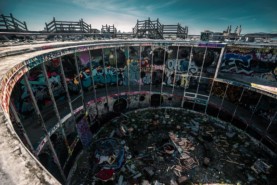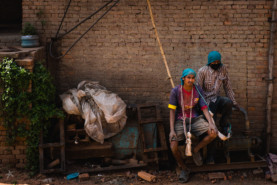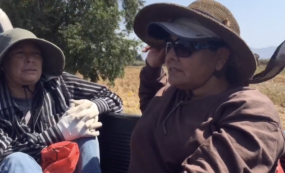Posted on 21 Oct 2014
The growing link between cartels and armed jihadi militants along Tunisia’s borders with Algeria and Libya, combined with heightened ideological polarisation, could form an explosive mix ahead of Tunisia’s legislative and presidential elections.
Overview
Since the December-January 2010-2011 uprising, Tunisia has successfully overcome successive political crises, yet seems less able to absorb the impact of major jihadi attacks. Despite the success of a national dialogue that significantly reduced tensions and helped begin 2014 on a note of optimism, leading to a significant reduction in political tensions, concerns are growing again. At the heart of this anxiety are an increase in violence along the Algerian border; the chaotic situation in Libya; the advance of radical Islamism in the Middle East – all made all the more acute by an alarmist anti-terrorist discourse. An echo chamber for the deadly conflicts agitating the region, Tunisia needs to approach the issue of terrorism in a calmer and depoliticised manner. The battles against terrorism and organised crime are inextricably linked. The government would gain from adding to its security measures new economic and social initiatives that would ensure that border communities are on the side of the state.
Since 2013, the alliance between arms and drugs traffickers and armed jihadi cells appears to have considerably strengthened in the border regions. The activities of the major illegal trade networks are encouraging violence that much of the media is quick to blame on terrorists. This violence could reach dangerous levels, particularly should a worsening of the Libyan conflict lead to serious economic and political consequences for Tunisia.
The social crisis in the south, the lasting alliance between cartels and jihadis, the exacerbation of ideological polarisation by regional developments and the approaching elections could form an explosive mix. Voters and candidates in the forthcoming parliamentary and presidential elections – scheduled for 24-26 October (parliamentary), 21-23 November (first round, presidential) and 26-28 December (second round) – are fearful that the electoral process could fail and that Tunisia could suffer the same fate as other countries in the region. The deepening security crackdown, combined with the reprisals carried out by weakened jihadi groups, risk forming a vicious circle. The independent, so-called “technocratic” government of Prime Minister Mehdi Jomaa is playing on the resonance of anti-terrorist sentiments. This is recasting the anxieties of the educated middle class toward a fear of religious extremism. In this context, the risk is that a major terrorist attack would promote further ideological polarisation between Islamists and secularists.
In order to deflect another crisis, the authorities would benefit from carrying out two principal measures. The first is to strengthen the state’s presence in border regions through socio-economic development policies whose impact would be quickly noticed by local communities. The second is to implement an effective and calibrated counter-terrorism strategy, in contrast to sensationalist media treatment that only serves to increase anxiety about jihadis and indirectly promotes confusion between different strands of Islamism.
Regional and international ideological trends on the question of political Islam impact Tunisia, but need not determine the country’s future. After its initial report “Tunisia’s Borders: Jihadism and Contraband” (November 2013), this briefing analyses the new reality of threats on the Tunisia-Algeria and Tunisia-Libyan borders and offers suggestions to attenuate risks.
In the near term, it is crucial for the main political, trade union and civil society forces – both Islamist and non-Islamist – to maintain a consensual approach to public security and for the authorities to adopt a calmer anti-terrorist discourse in order to prevent renewed polarisation in the event of a major attack on the country. Similarly, it would be desirable that the government, or the one that will follow it, increase security cooperation with neighbouring Algeria, pursue the creation of a new National Intelligence Agency, and dialogue with contraband cartels in order to persuade them to stop trade in dangerous goods, and possibly encouraging some to collaborate with the Tunisian state on the security front. Such measures would ultimately help keep border communities from becoming irrevocably alienated from the state and be tempted, in the medium term, to challenge it directly by joining militant groups.



